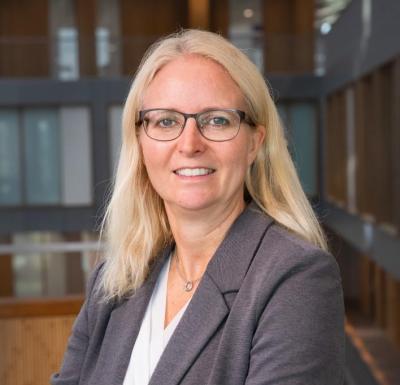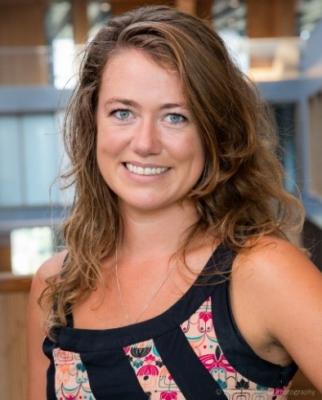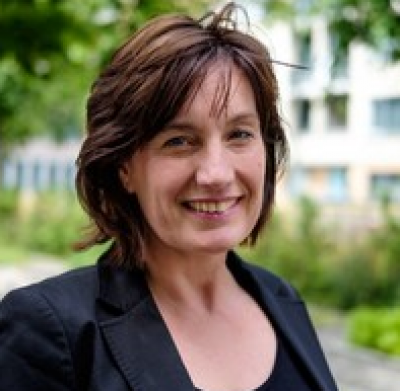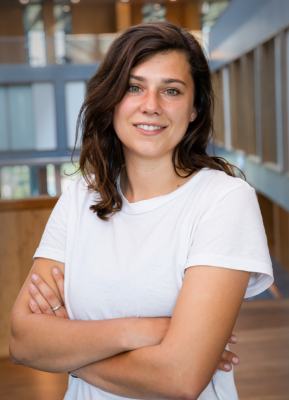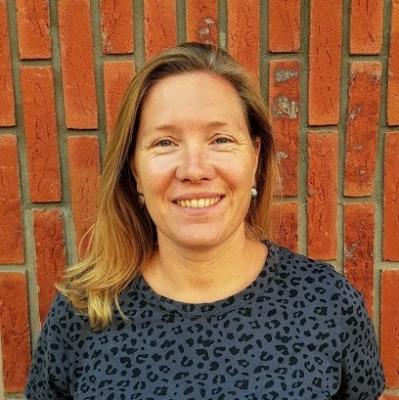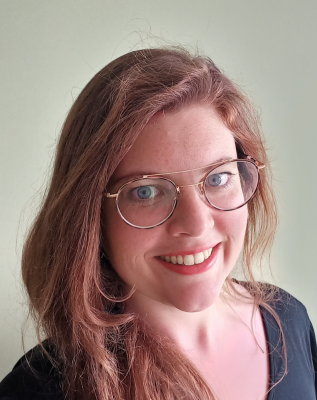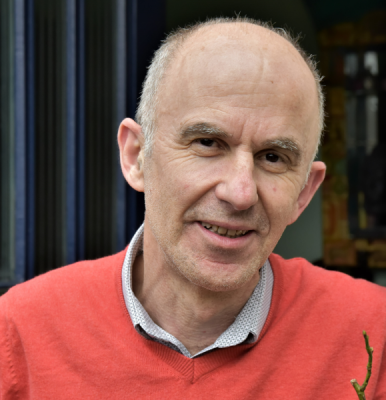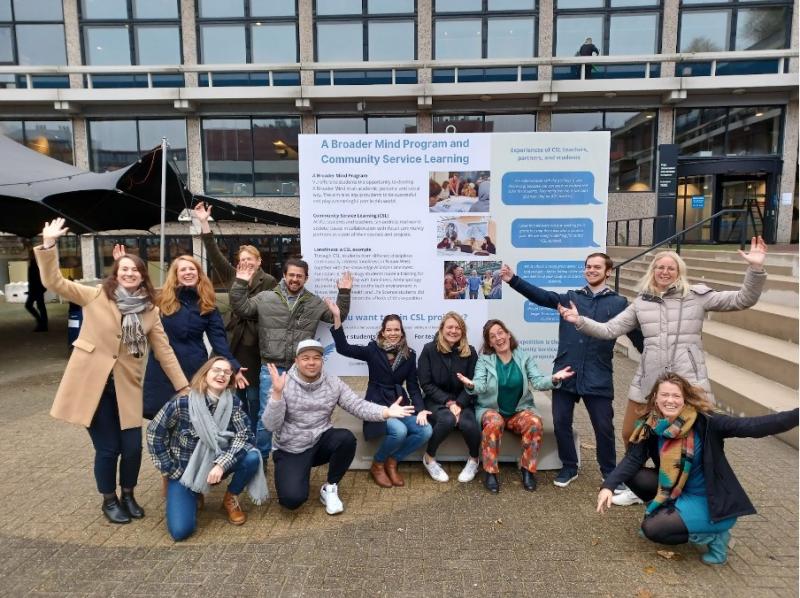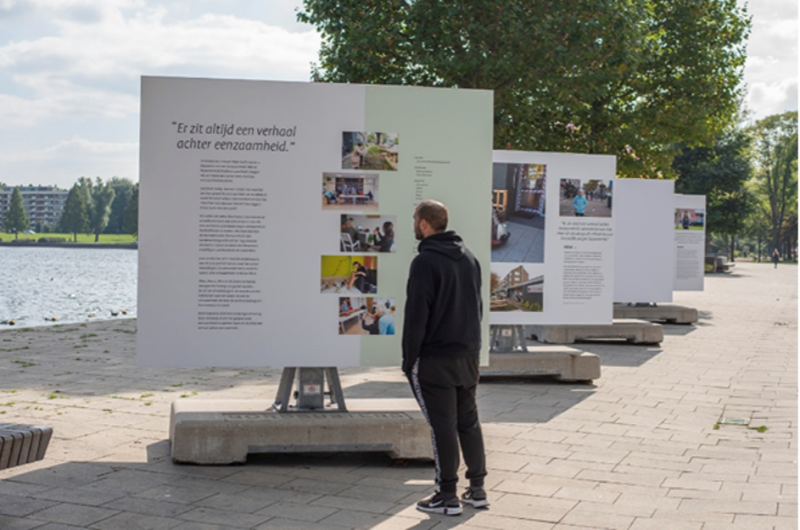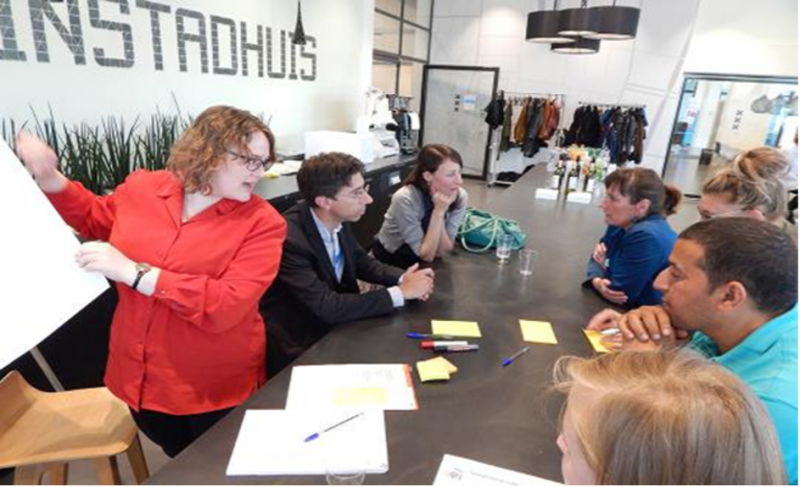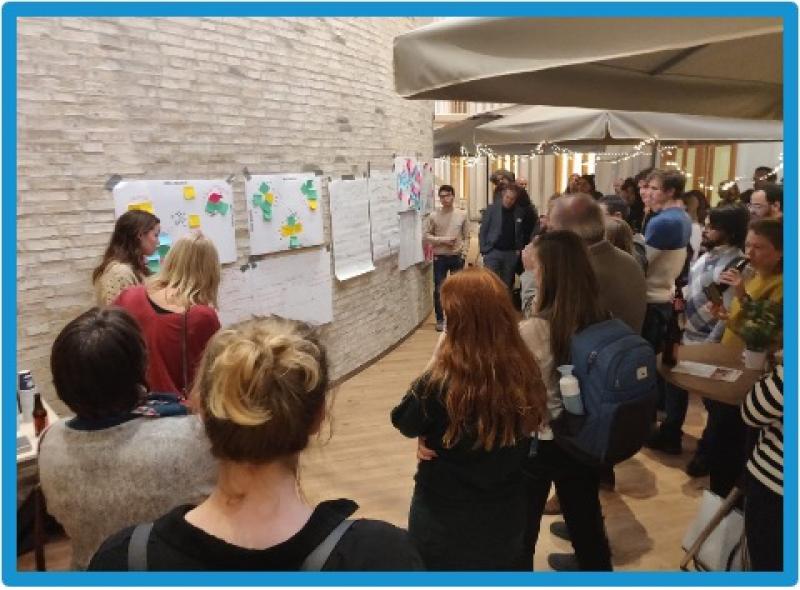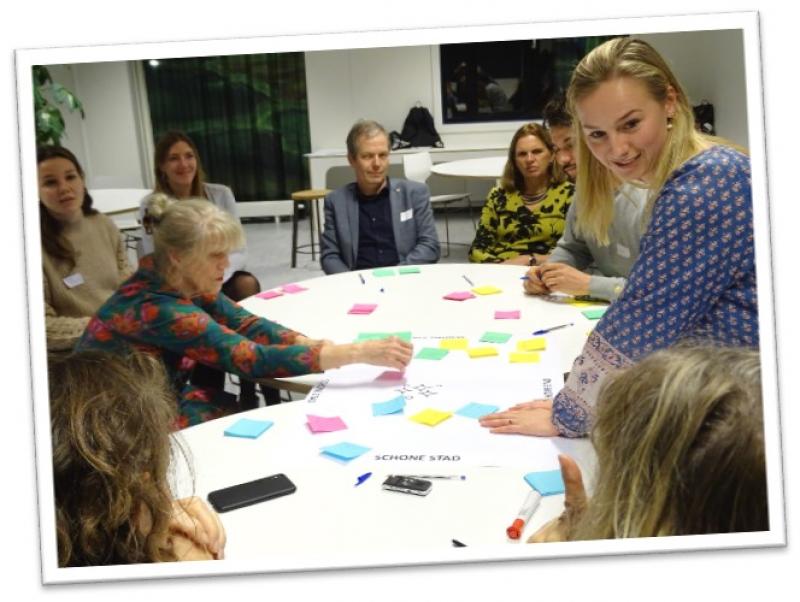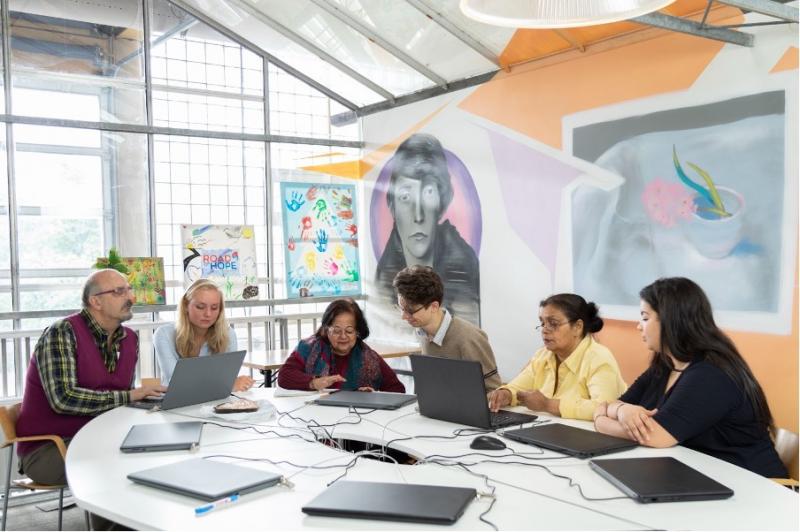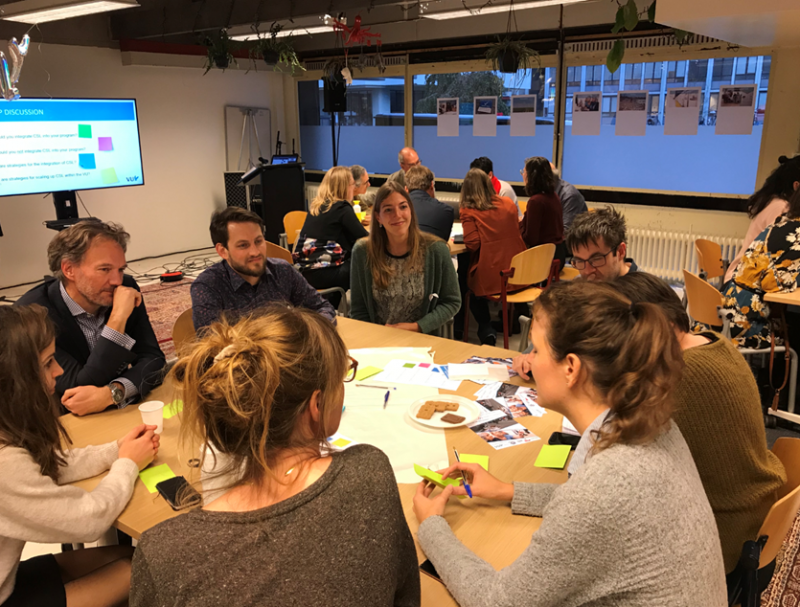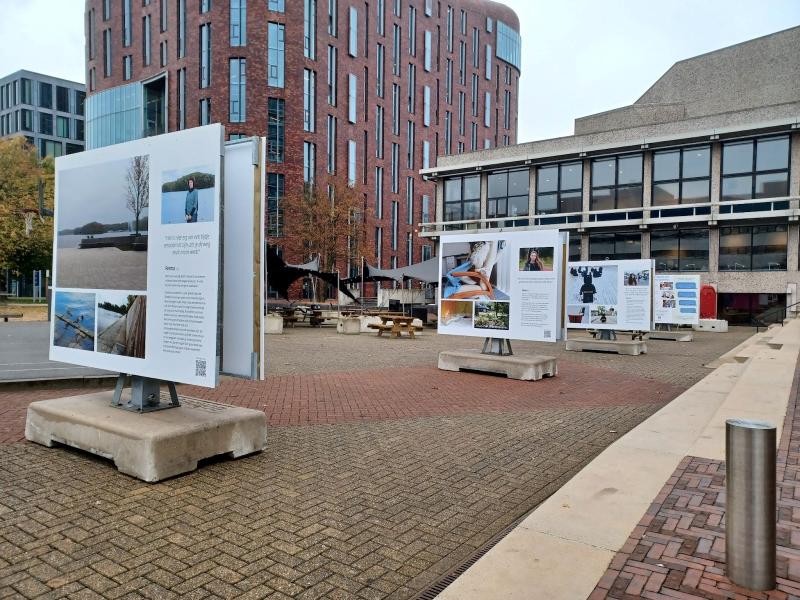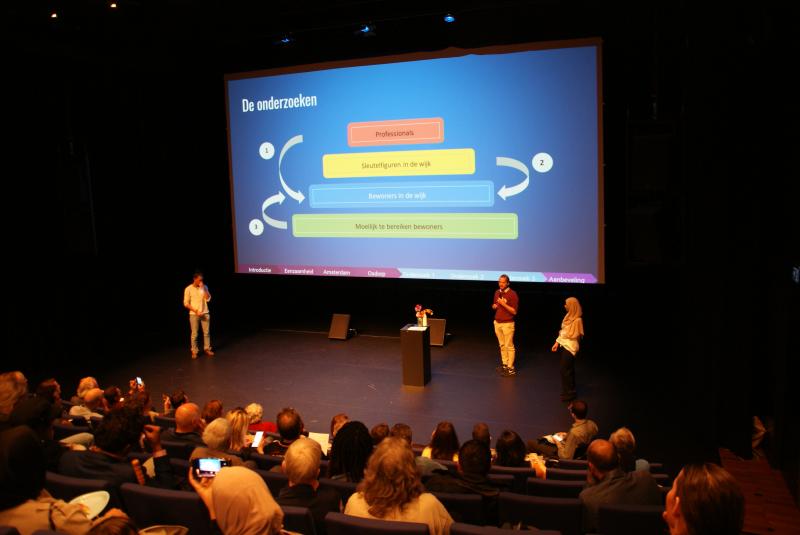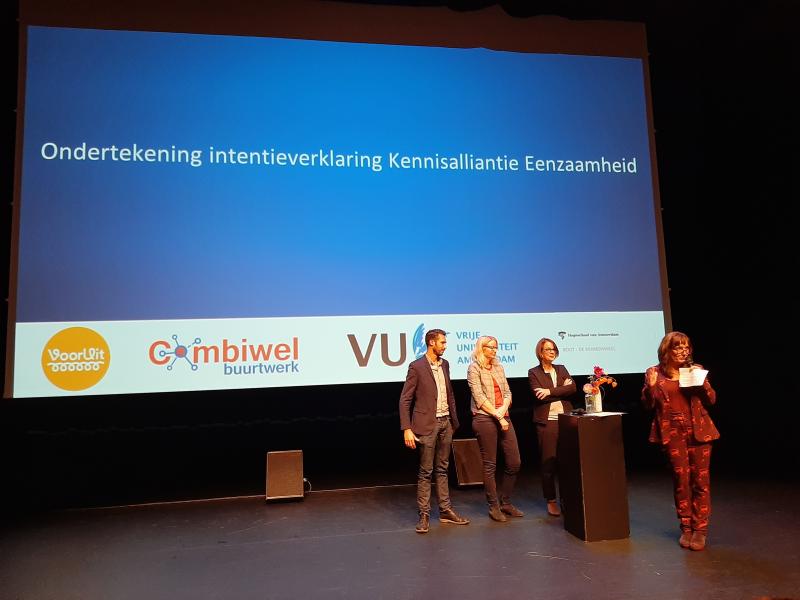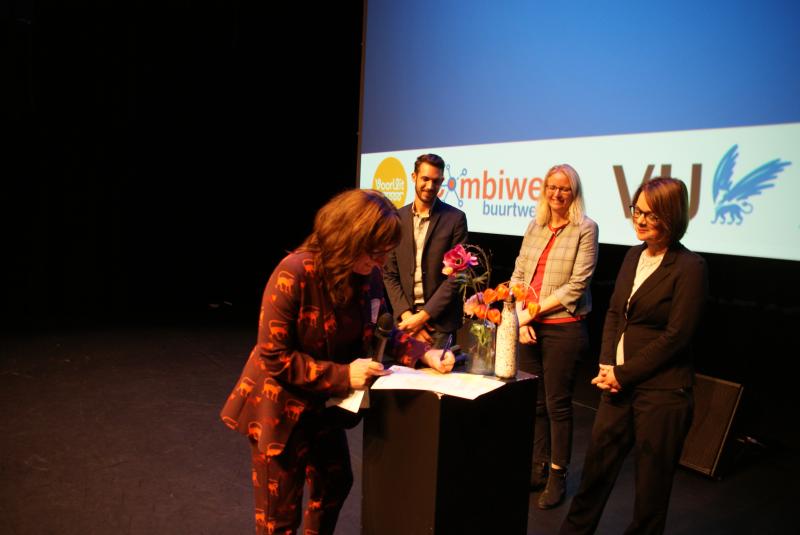The Community Service Learning (CSL) team of the VU Amsterdam has adopted an innovative initiative we refer to as the ‘thematic approach’ where multiple existing courses and internships from a variety of programs offered by various faculties are clustered to address one complex societal issue. The topic of the thematic approach was built entirely around the needs of the local community as it resulted from a “Meet & Match” event in the local area of Amsterdam New-West which included residents as well as Local Civil Society Organizations (CSOs) and representatives of the Municipality of Amsterdam. These ‘externals’ were in charge of agenda setting and loneliness arose as an important topic to consider. Within previous studies considering multi- or interdisciplinary CSL, the collaborations oftentimes start with courses (Falk, 2012; Norton et al., 2018) or campus initiated programmes (Harrison et al., 2013) making our community centered theme based CSL approach perhaps unique. Following an action research approach (Lewin, 1946), the CSL team continuously linked both the specific issues that emerged from the Meet & Match event and new ideas and knowledge generated during ongoing community-based activities to other courses and internships, resulting in a wide variety of programs offered by various faculties within higher education institutes that are clustered to address the complex issue of loneliness in the local area of Amsterdam New-West. This approach thereby facilitates an ongoing process of knowledge co-creation to address the complex issues.



